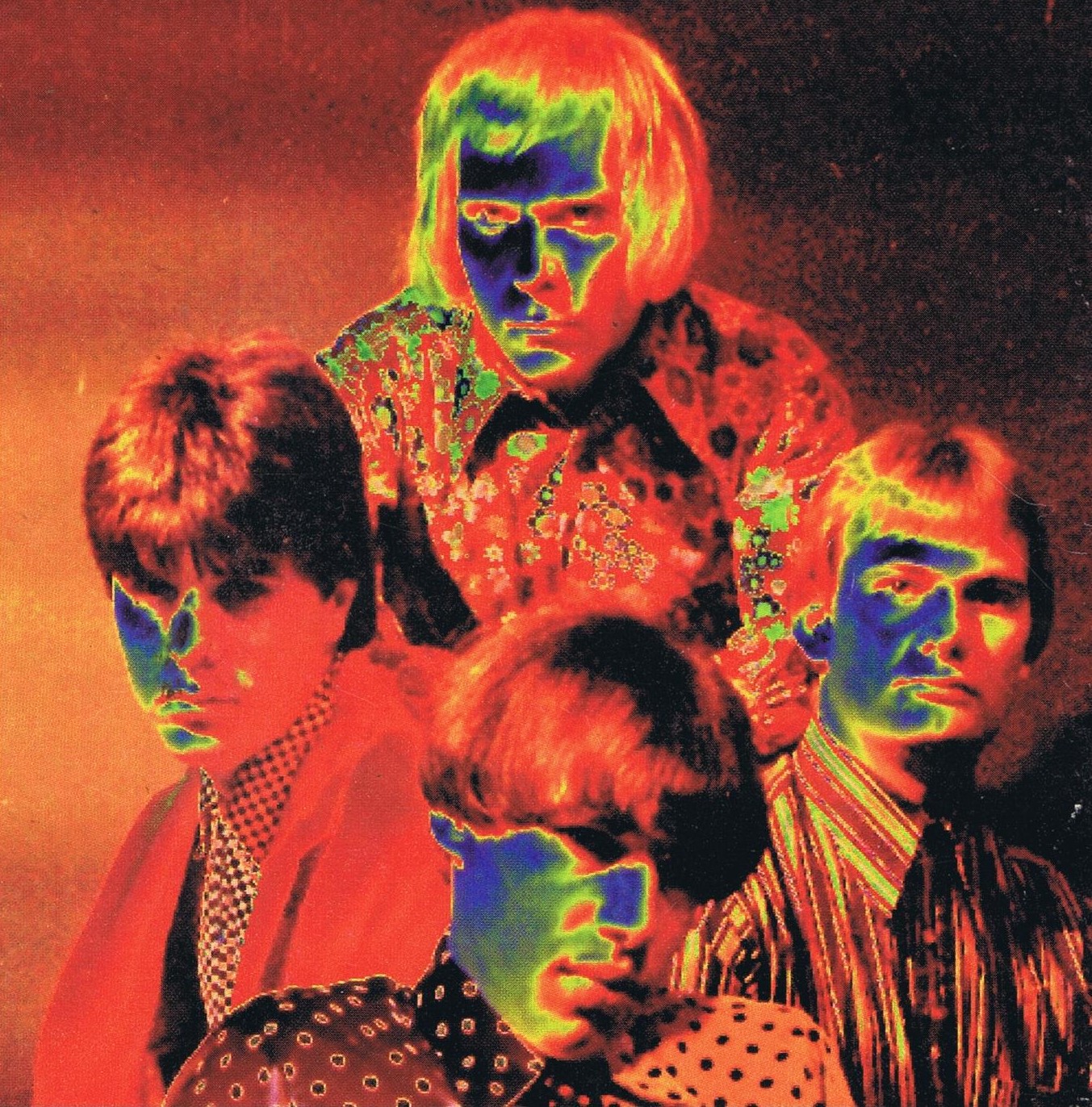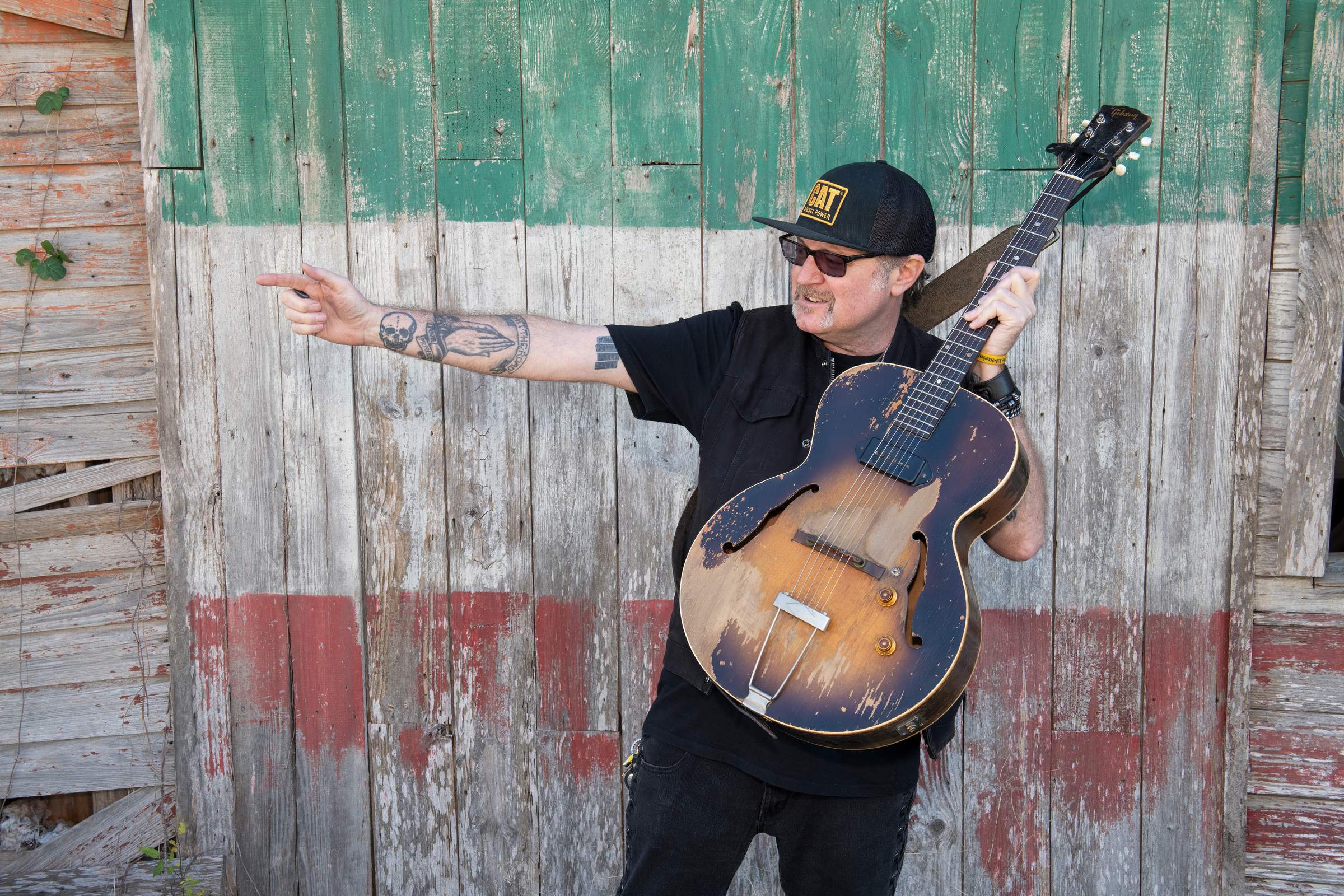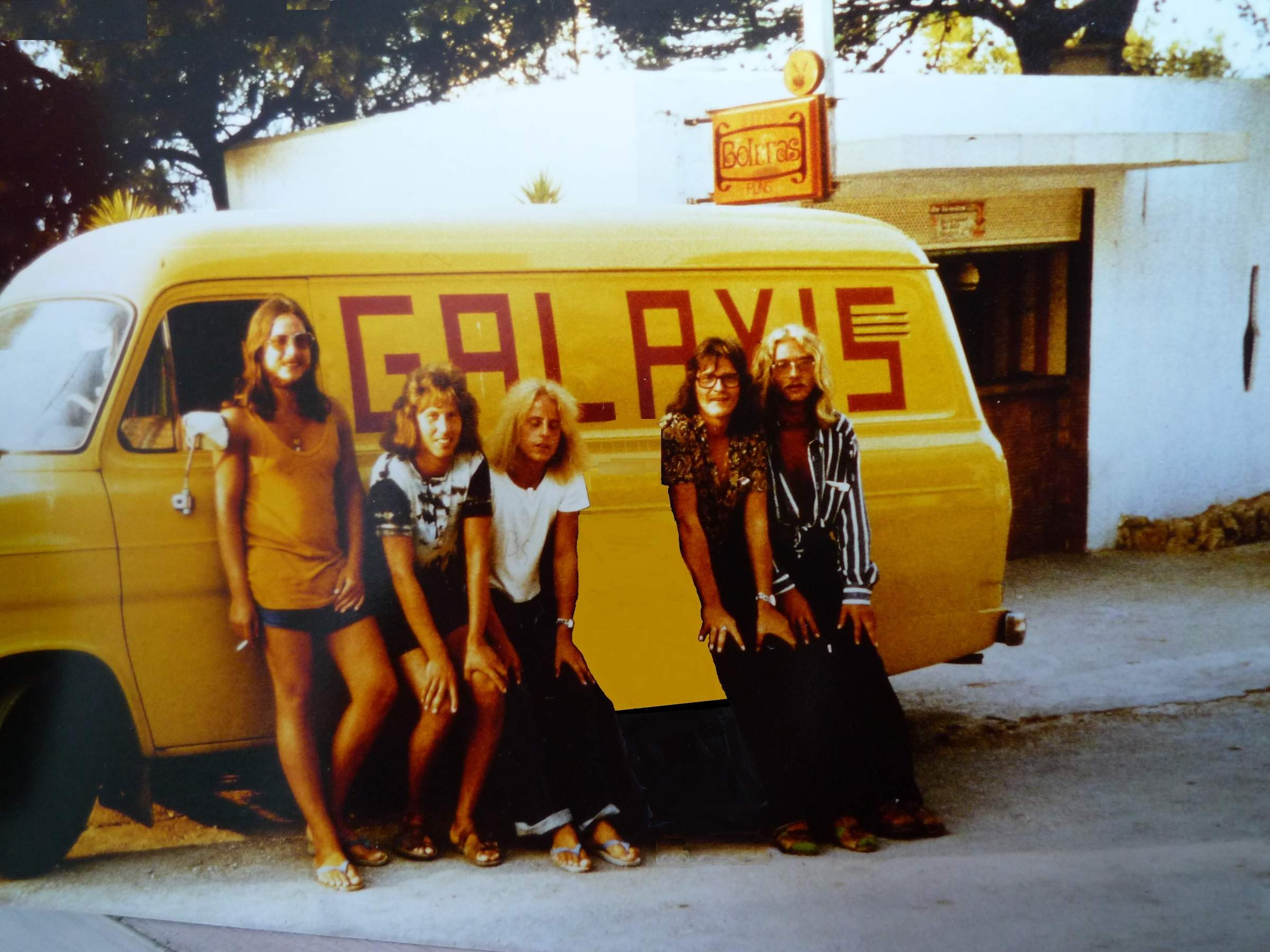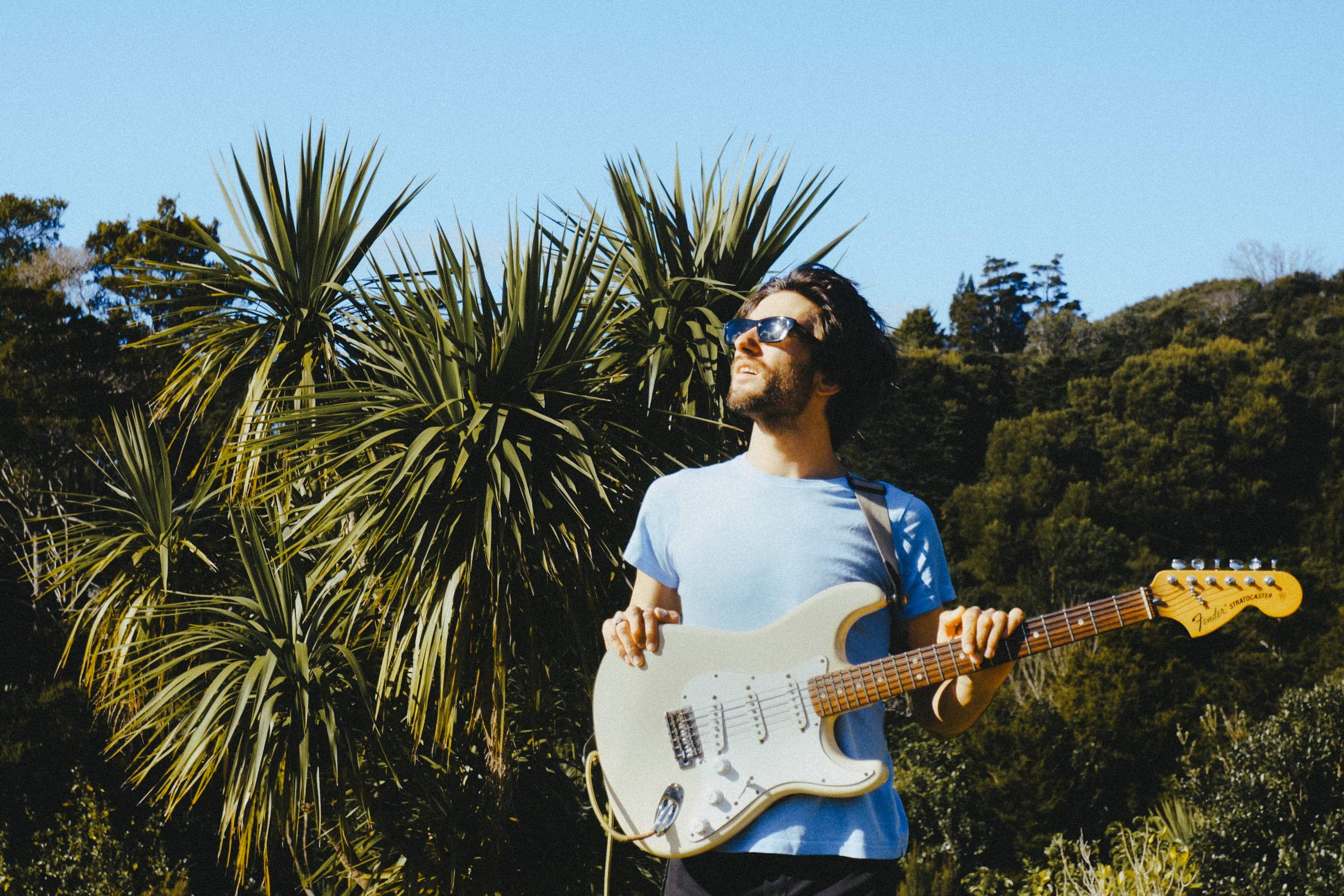Plasticland | Interview | New Album, ‘Spree’
‘Spree,’ the latest album by Plasticland, heralds a bold departure from the band’s previous psychedelic soundscapes, offering a fresh exploration into heavier post-psych-rock realms.
Well, I’ve just received the brand-new vinyl-only LP in the post from those Wisconsin-based wizard psychsters Plasticland. It’s called ‘Spree,’ and the name of the label might also be called Spree, although I’m not sure as there’s no obvious label name anywhere, but the catalogue number is prefaced with the letters SR. Anyway, yeah, ‘Spree’ by Plasticland, the group’s first album of new material in many a year. Recorded over two sessions, the first apparently in 2006 involving founder member Glenn Rehse and relatively new guitarist Leroy Buth. They are joined by veteran Plasticlanders John Frankovic (bass) and Victor Demichei (drums). The second session, taped in 2013, features more new recruits, Andy Kaiser on bass and drummer Mike Koch.
I suppose the first thing to note after playing the album through is what a departure from Plasticland albums from the 80s and 90s, in that there is now a distinct change in their overall sound. Here, the preference is to steer the good craft Plasticland away from the overtly ‘67 psychedelic fuzz-pop and acid garage spectrum that much of their material had been wrapped up in and try experimenting with some harder riffs and bringing in influences from later 60s and also U.S. and European early 70s sounds. However, it’s not clichéd mainstream rocking by any means, and one can still hear the spectre of such maverick scenesters as their beloved heroes the Pretty Things. This can be heard especially on tracks like ‘Tasting The Color Of Sounds’ and the compelling ‘Labyrinth, the Maze’ as well as other tracks. There’s also some insider-like knowledge displayed in the lyrical space occupied by ‘Pink Fairies Motorcycle Club,’ another suitable, knowing reference for freak geeks everywhere. Rehse is in great form throughout as lead vocalist and also plays some guitar here and there, but it’s the lead guitar playing of Leroy Buth that tends to shape and color the bulk of the songs with his heavy riffing style and hypnotic soloing.
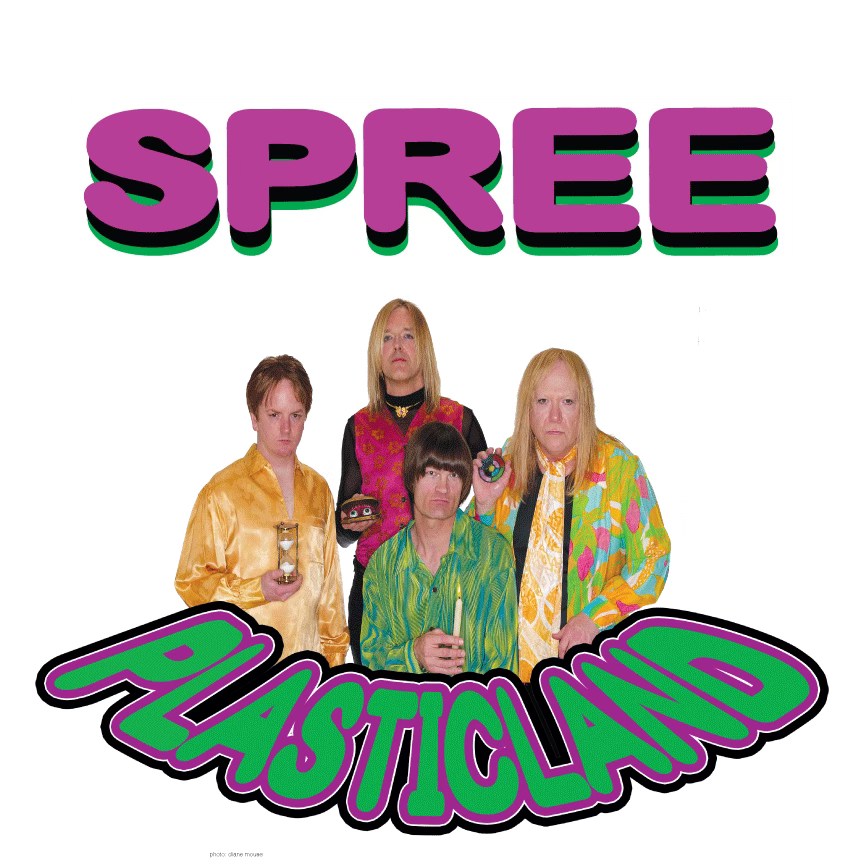
As well as those tracks mentioned above, another, ‘Silk Purse Of The Sewer,’ and the altogether more disturbingly vocalized, strung-out sounding tale entitled ‘Garden Of The Heavies,’ count as the album’s other truly standout tracks, both witnessing a return to some of the more far-out and imaginative lyricism — the former exercising more economy of scale than the latter — readily associated with this legendary group. So there we have it, and once you get over the shock of the new, heavier post-psych-rock direction Plasticland has chosen for this album I’m sure, like I did, you’ll find it’s a pleasant journey to take with many new and fresh sounds to experience. As you listen, you may also find yourself at first gazing, before being sucked into the pink and green polka dot luminescence of the LP cover!
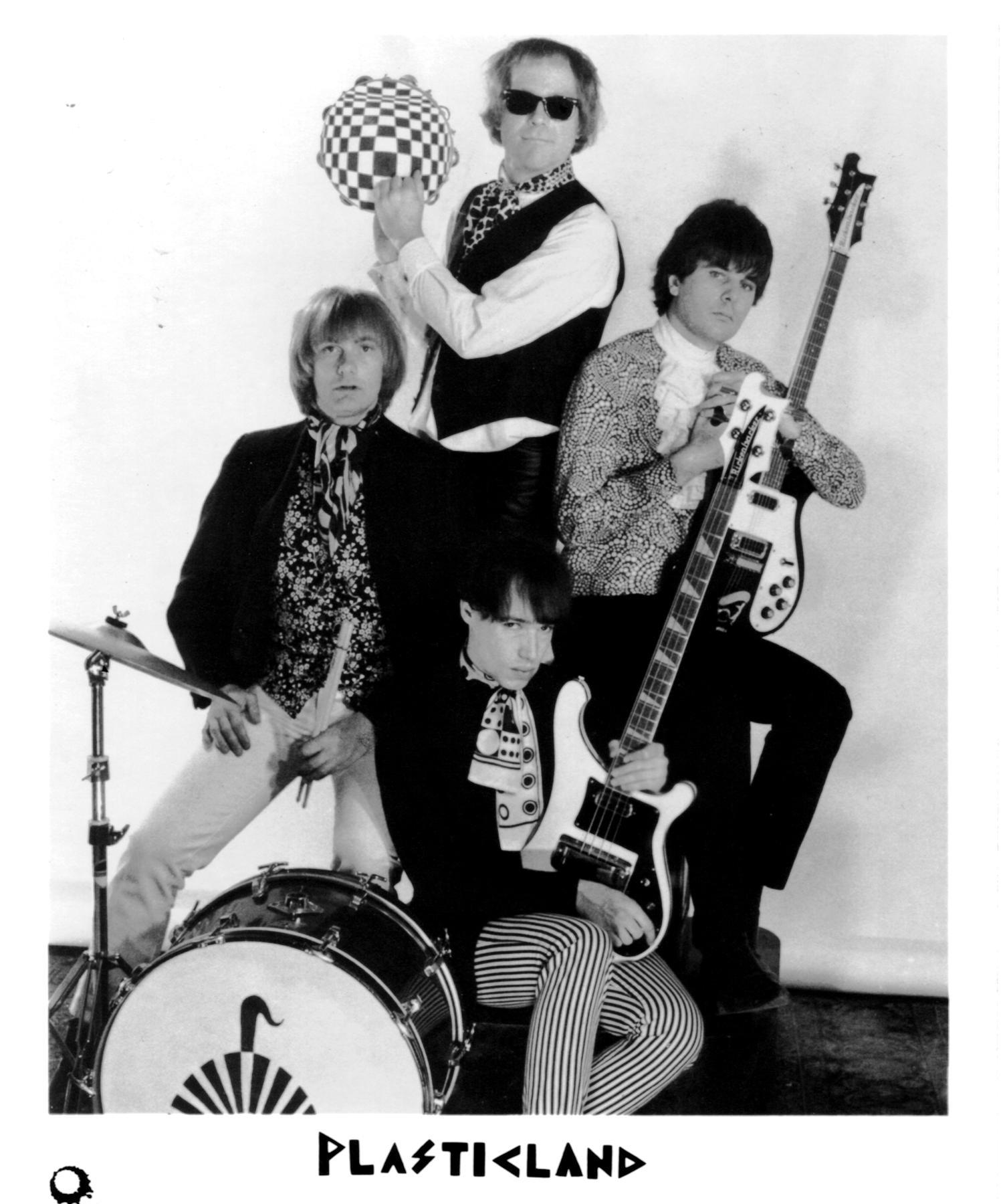
“Different fuzzboxes give you different sounds”
Glenn Rehse of Plasticland interviewed by Lenny Helsing
Originally, in 2014, I sent the majority of these questions to Glenn Rehse of Plasticland through a third party; however, they didn’t reach Glenn, and so I heard nothing back. Fast forward to autumn 2023, and after making some adjustments to a few of my questions, a friend of the band’s, Arnald Paul, guaranteed that he could get my questions to Glenn. And so it was that I then received a lovely, proper old school letter through the post from the Plasticland man himself. Here’s how I introduced myself.
Hi Glenn … my name is Lenny Helsing from Scotland. I write for Shindig, Ugly Things, and It’s Psychedelic Baby! magazines and also play in a group called The Thanes. But first and foremost I’m a big fan of garage and psychedelic music, and therefore I’m quite partial to a bit of Plasticland. In the early 1980s, I used to be in a group called The Green Telescope, and it was during this time period that I remember walking into Virgin record store and buying the new, brilliant ‘Euphoric Trapdoor Shoes’ single and turning anyone I could in Edinburgh onto you guys … So anyway, thanks for making all that great music, and here are a few questions for you, and I eagerly anticipate any answers you can provide, cheers!!!
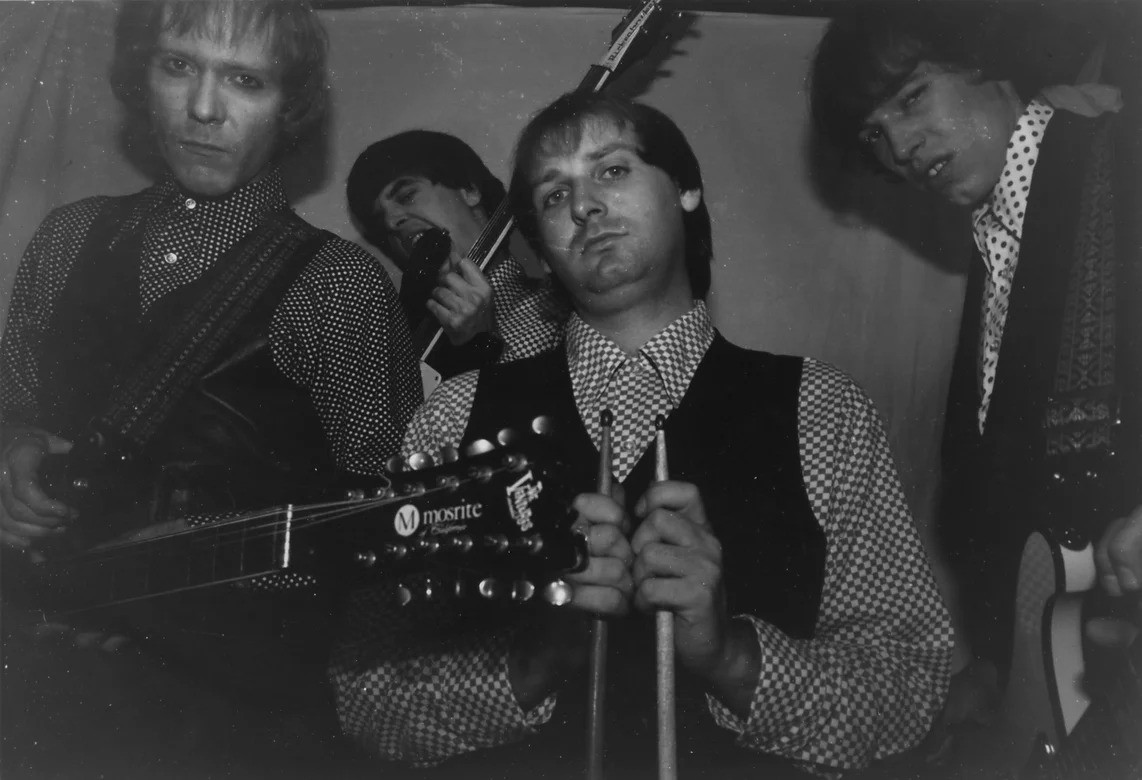
First off, what was your upbringing like, and how did you first discover the joys of 60s psychedelic pop music?
Glenn Rehse: John Frankovic and I spent the first few years living in the town of Granville in the Fontosa Heights subdivision, which was taken over by the city of Milwaukee. Starting out as a semi-rural area, farm fields soon vanished, and the developers moved in. By 1966, we were in the city. Because of our local 4-H club talent shows, we became stage-friendly – doing plays and music. After we were in our teens, we started doing other shows.
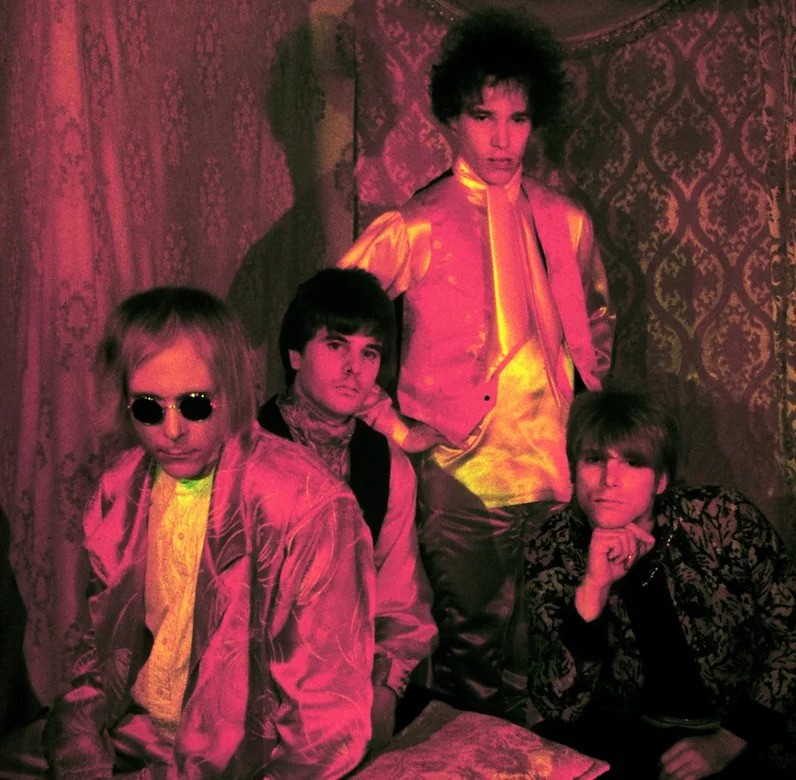
The only form of radio was Top 40 stations, but in 1966, some great things beyond the typical pop began to emerge. Nearly every song on Nuggets could be heard as time went on, and our interest intensified with these “new” sounds. Besides the pop scene, there were two stations that covered the black music scene – WNOV and WAWA, and most of that greatness influenced us as well. As time went on, two “underground” stations appeared on the FM band – WTOS and WZMF, both featured album tracks of the more popular hippie era bands or artists. In my opinion, they weren’t even half as cool as they thought they were. They eventually fizzled out as commercial LP rock took over. Personally, I was at an advantage as my dad had shortwave radio, and I listened to stations in Boston and Germany, discovering a lot of music never aired in Milwaukee. Going to the import bins at record stores became crucial, and addictive. WLS (Chicago) did play a lot of garage and psych which helped.
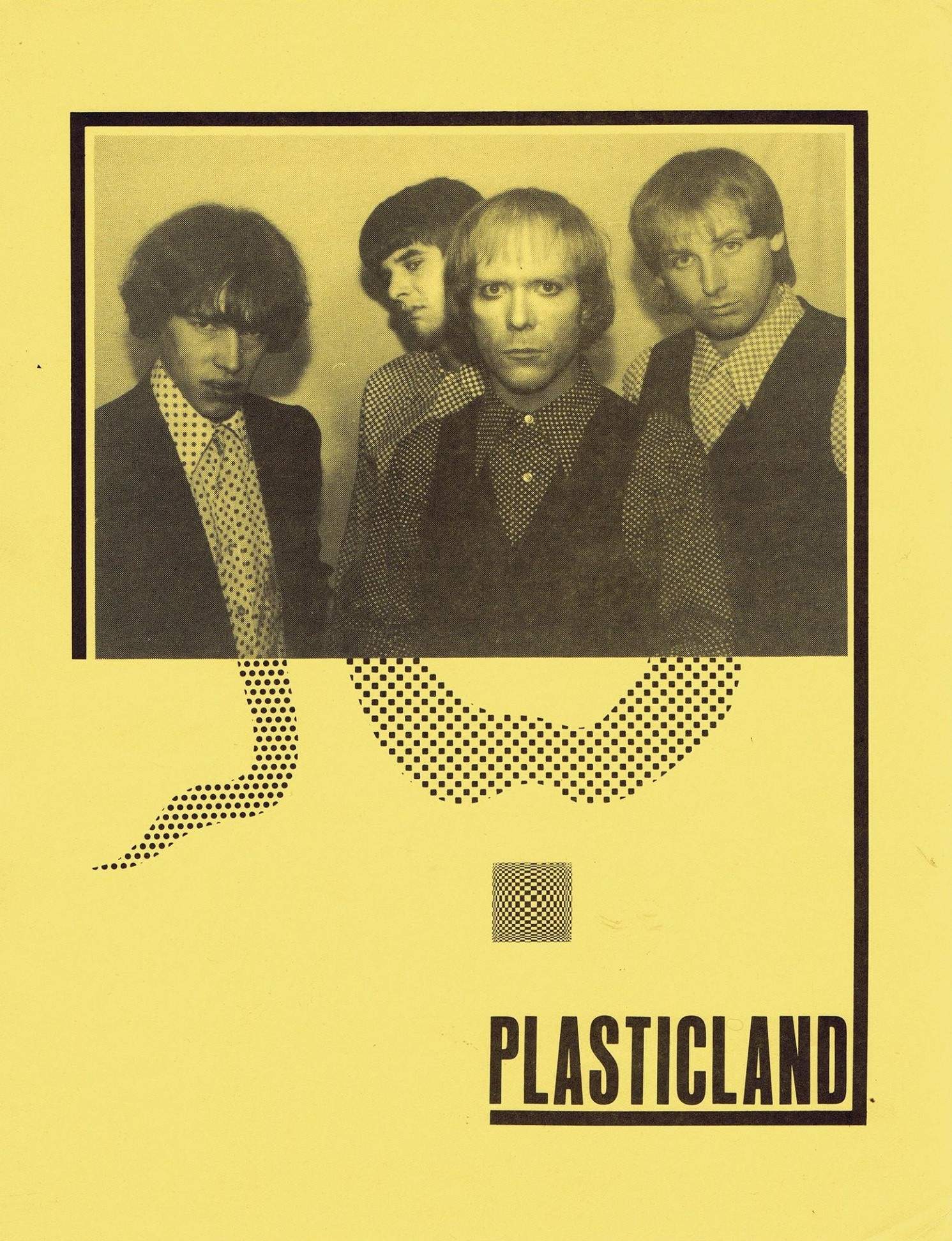
Were there any groups you and/or any of the other guys were in before Plasticland?
There was Arousing Polaris, which eventually became Plasticland. That lasted from March 1974 to June 1979. It was a psych-prog art rock thing that became more electronic over time. The krautrock scene interested us – Neu, Can, Amon Düül, and the cosmic stuff – Klaus Schulze, Ash Ra Temple.
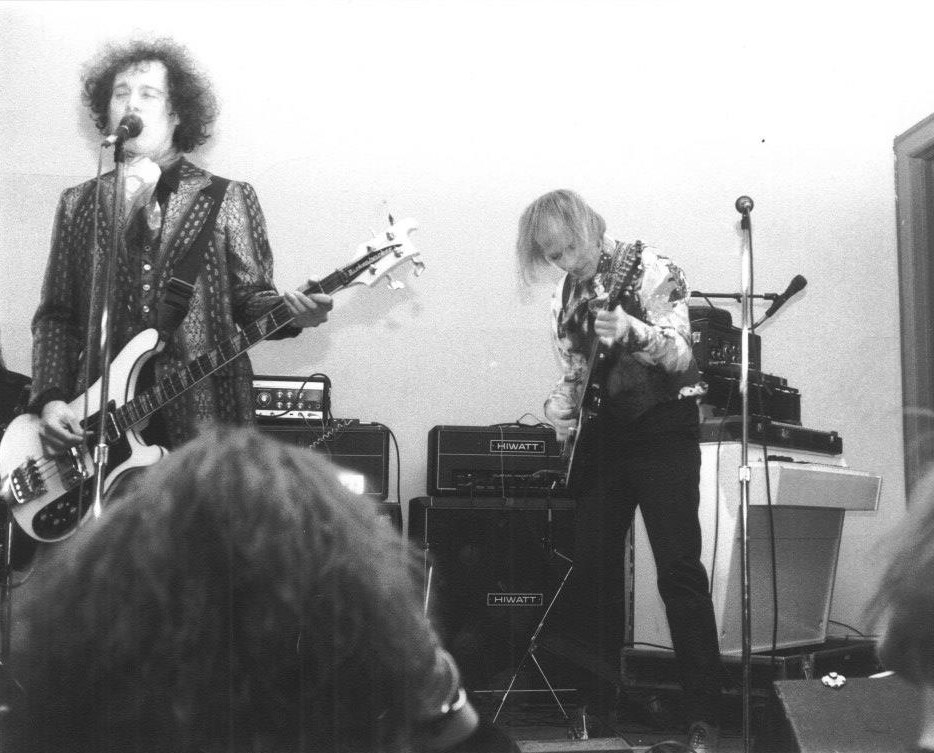
How was the group perceived in and around Milwaukee… and other places – were you able to play some prestigious gigs there, or was the group’s following small and grassroots if you like?
Both Arousing Polaris and Plasticland had great and lesser opportunities. You always hope for the best no matter how large or small. Small shows can be more personalized. Higher-profile shows tend to pay better and throw in extras like food and drinks. Happy to say most gigs went well.
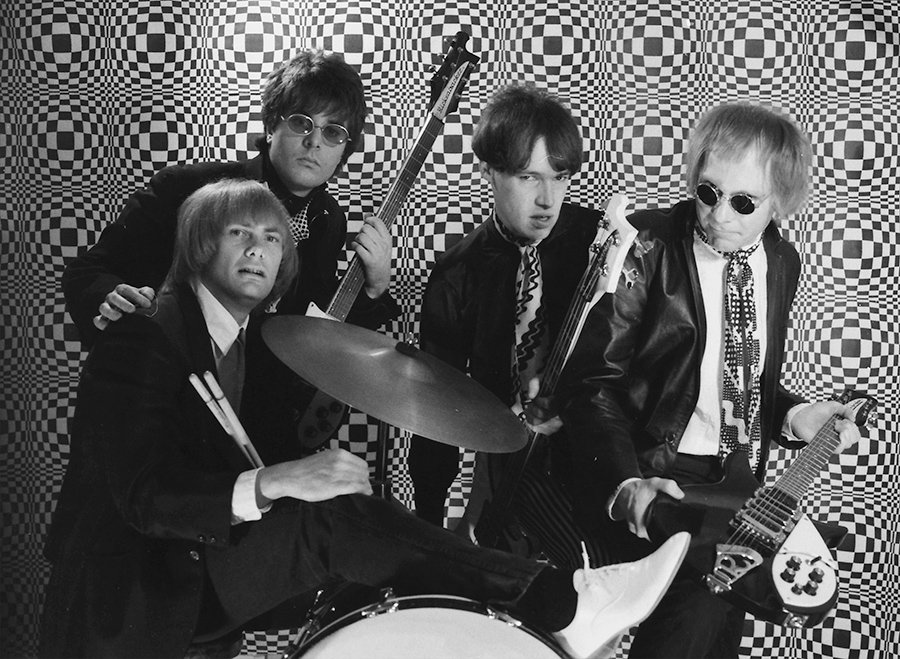
What was it about British psychedelic sounds, in particular, that so fixated you guys, and can you pinpoint two or three examples of that approach?
A bit more fantasy and less doom and gloom politics. The U.S. at that time was at war. As a teenager, I wanted to hear music that made me feel good, and Syd Barrett era Pink Floyd, ‘S. F. Sorrow’ by The Pretty Things, and the Tomorrow LP did that. Arthur Brown’s first LP, The Who ‘Sell Out’ were a few favorites, and the first two Soft Machine albums had a major impact. There were some remarkable U.S. bands, but they didn’t influence us quite as much – MC5 and Blue Cheer did.
Although probably obvious from some of the covers you guys played, what groups were Plasticland favorites?
I’ve mentioned a few, but being in different roles in the group as individuals, we varied. For example, Victor loved Mitch Mitchell so he listened to Jimi a lot. I really like The Smoke, Creation, The Pretty Things. John really liked Hugh Hopper – but we all listened to a lot of music.
Besides the previously mentioned influences, here are a few more in high regard. Not all are from the U.K. Hollies ‘Evolution,’ Incredible String Band ‘5000 Spirits,’ John’s Children ‘Orgasm,’ July, The Left Banke, The Move, Q65, Spooky Tooth ‘It’s All About,’ 13th Floor Elevators, The Chocolate Watchband, The Blues Magoos, The Other Half, The Deviants, Eire Apparent, Them, The Tages, plus many great singles artists too numerous to mention.
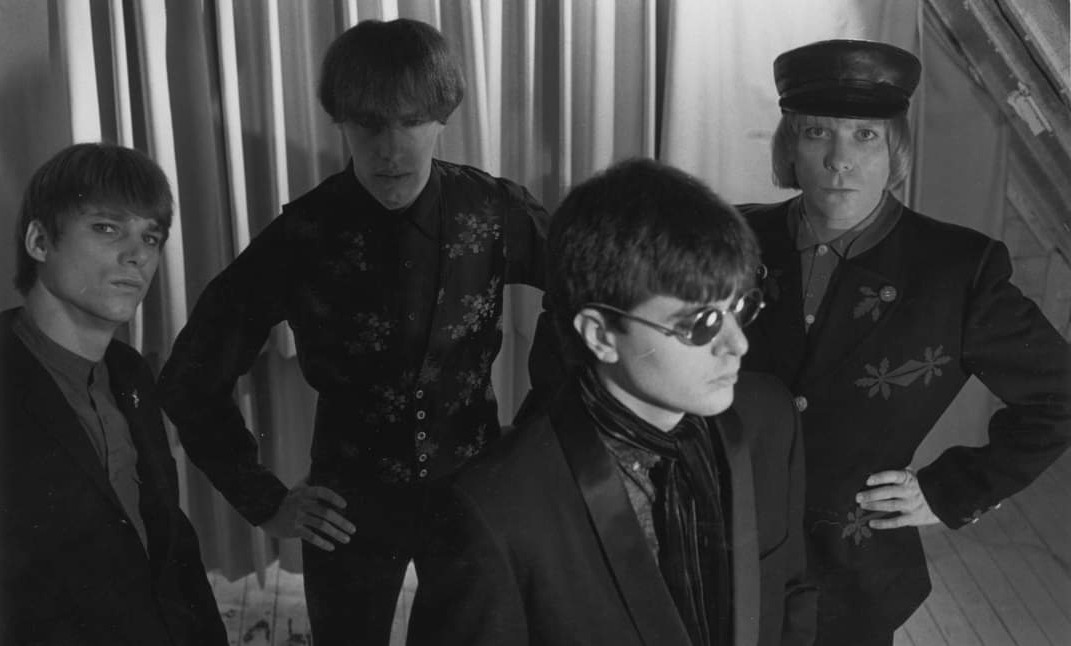
Lyrics – how did Plasticland go about writing and how strong/real was the lysergic influence?
I began writing lyrics early in life (age 10). Music as well. I didn’t “turn on” for a few years. After I did, poetry flowed as did art and of course the music. I wrote the lyrics for Plasticland because I had experience, vision, and humor. I studied lyricists like Keith Reid (Procol Harum). I also liked Pete Sinfield and Peter Hammill who convinced me it would be better to have a consistent writing style. Most lyrics were written in sobriety.
How do you feel about this newest UK collection that Cherry Red have issued, (2014 remastered CD reissue of 1984 debut album ‘Plasticland’) and what for you counts as perhaps the most accurately realized of your songs?
I wished the folks at Cherry Red would have stayed in better communication. After the man who signed us left the picture, we had virtually no one to answer questions. I gave them lots of photos not put to good use. I’m not sure which of our songs are most realized.
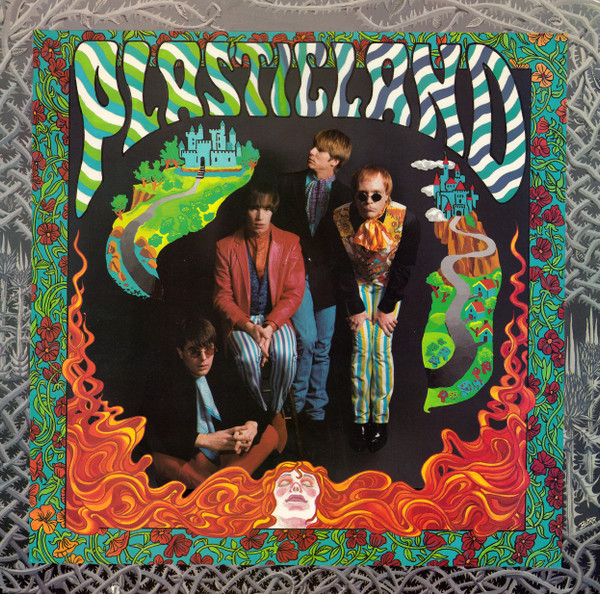
Was there ever a time in the band’s existence where you thought, yeah, this could really break out and do something big … ‘Euphoric Trapdoor Shoes’ perhaps?
One always has hopes, but I never held my breath. We knew we were an underground type of act and that the major market probably would not push us to the top. That was reality.
Who were the most stable, or longest-serving Plasticland line-up, or did it follow a different pattern throughout the band’s lifespan?
Probably Dan Mullen and Victor Demichei, but I guess thinking back, it was somewhat of a floating line-up with John Frankovic and I as the constants. This remained so until early 2008 when he decided he’d had enough. In 2019, we did a reunion show that included the Salon line-up plus Leroy Buth who became the lead guitarist in 2006 and remains so. I quit playing due to arthritis but play on the forthcoming LP, ‘Spree’. John and Victor are on three tracks and the others have Andy Kaiser and Mike Koch as the rhythm section. Other members included Rob McCuen and Breck Burns, and Dave Raeck – all deceased. And Bob Du Blon and the famous Brian Ritchie! All were important in creating the Plasticland sound.
How important would you say the fuzzbox was to the Plasticland sound, and how were some of those intensely treble tones and durable sustain achieved?
Very, very important! Different fuzzboxes give you different sounds. We all used different equipment. Choice of amps also makes a difference. What I used changed over time simply to keep the sound growing. We went back to full stacks to get some of those sounds. Imagine the Creation and Eddie Phillips’ monstrous power chords – pure genius. I wonder what he used back then. When I saw them, they did not use stacks but were great!
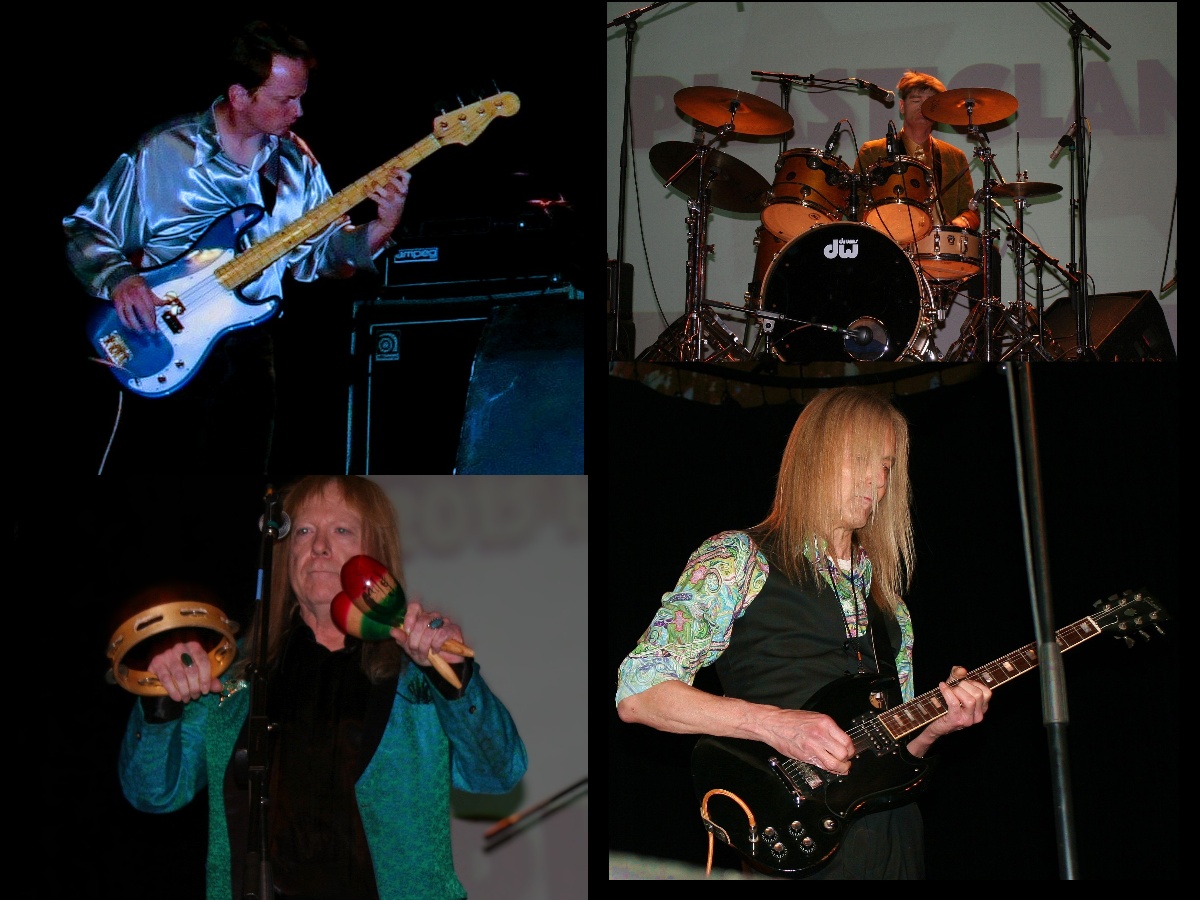
If you can, sum up the world of Plasticland in a couple of sentences?
To do so would be difficult as Plasticland’s legacy spans forty-three years. Uncertainty of the future comes to mind, so we’ll have to wait and see. Time for divination, I guess!
NEWSFLASH!!! Plasticland’s long-anticipated, brand-new album, ‘Spree,’ is out now. It’s their first in many years and was recorded over two sessions, which took place first in 2006, before being completed in 2013. At this juncture, it’s a vinyl-only affair and limited to 500 copies.
I would like to extend my grateful thanks to Glenn Rehse for his time and efforts in answering my questions. Thanks also to Arnald Paul for all his help in making this happen, and to Klemen for allowing me the space to share this on the wonderful It’s Psychedelic Baby platform!
Lenny Helsing
Plasticland Official Website / Facebook

